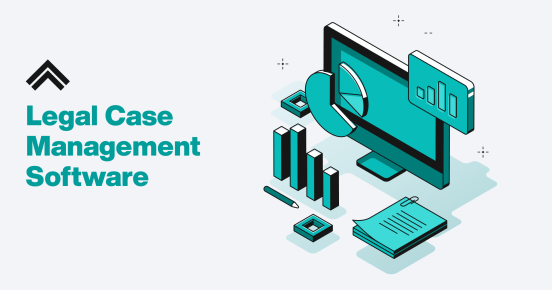Complete Guide to Legal Case Management Software
For legal professionals across the U.S., managing cases, keeping up with client communication, and meeting compliance demands have become increasingly challenging. Legal case management software provides an all-in-one solution to streamline operations, automate routine tasks, and enhance productivity—allowing firms to concentrate on delivering outstanding client outcomes.
For legal professionals across the U.S., managing cases, keeping up with client communication, and meeting compliance demands have become increasingly challenging. Legal case management software provides an all-in-one solution to streamline operations, automate routine tasks, and enhance productivity—allowing firms to concentrate on delivering outstanding client outcomes.

What Is Legal Case Management Software?
Legal case management software is a specialized system designed to help attorneys, support teams, and small practices better organize and manage cases. These platforms bring together key elements such as case documents, schedules, deadlines, client communications, and billing into a single interface. By doing so, they simplify day-to-day workflows, reduce manual work, and improve collaboration across legal teams.
Key Features of Legal Case Management Software
Document Storage – Secure, centralized repository with quick search capabilities.
Scheduling & Deadline Tracking – Keeps hearings, filings, and client meetings organized.
Billing & Time Recording – Automates invoices and tracks billable hours accurately.
Client Communication Tools – Central hub for all client interactions and updates.
Workflow Automation – Generates forms, updates case status, and handles repeat tasks.
Compliance Assistance – Supports adherence to U.S. legal standards like HIPAA, and GDPR for international clients.
Why Law Firms Benefit from Legal Case Management Tools
- Boosted Efficiency
Automation frees legal professionals from repetitive tasks.
Example: Automated document drafting can cut preparation time nearly in half.
Benefits: Faster case intake, reduced admin workload. - Improved Teamwork
Shared access and real-time updates enhance team collaboration, regardless of location.
Benefits: Clearer communication, fewer mistakes, and timely delivery of work. - Stronger Client Service
Centralized data ensures quick responses and more transparency.
Example: Clients receive automated reminders to prevent missed appointments.
Benefits: Greater client satisfaction and trust. - Cost & Time Savings
Although initial setup may require investment, long-term productivity and billing accuracy outweigh the expense.
Benefits: Reduced overhead, maximized billable hours. - Regulatory Compliance
Helps firms meet privacy requirements while reducing risks of penalties.
Benefits: Secure storage, built-in compliance checks, minimized liability.
Types of Legal Case Management Systems
- Cloud-Based Solutions
Web-based platforms managed by the provider.
Pros: Remote access, automatic updates, reliable backups.
Best For: Small and mid-sized firms, distributed teams. - On-Premise Software
Installed and managed on a firm’s own servers.
Pros: Full data control, extensive customization.
Best For: Large firms with in-house IT teams. - Free Software Options
Lightweight platforms offering core functions at no cost.
Pros: Zero upfront fees.
Best For: Solo lawyers or startups testing digital solutions. - Specialized Tools by Practice Area
Custom-built for areas such as family law, criminal defense, or IP litigation.
Pros: Niche-specific features and compliance support.
Best For: Firms with focused practice areas.
Popular Legal Case Management Platforms
Software | Notable Features | Pricing (Monthly) | Ideal For |
Clio | Billing, time tracking, docs | $39–$125 | Small to mid-sized firms |
LEAP | Compliance, legal forms | $95+ | Mid-sized practices |
Actionstep | Custom workflows, cloud | $50–$125 | Firms needing flexibility |
Zola Suite | Built-in email, doc tools | $59–$89 | Startups, small firms |
PracticePanther | Client portal, calendar sync | $39–$79 | Solo & small practices |
Competitive Insights
Clio: Easy to use, integrates with MS 365 & Google Workspace.
Pro: Flexible pricing; Con: Limited deep customization.
LEAP: U.S. compliance focus with ready-to-use forms.
Pro: Feature-rich; Con: Higher subscription fees.
Actionstep: Highly customizable for unique workflows.
Pro: Adaptable; Con: Requires training to master.
Zola Suite: Emphasizes client communication.
Pro: Affordable; Con: Lacks advanced features for big firms.
Choosing the Right Legal Software
Clarify Needs – Identify must-have functions like compliance or client portals.
Set a Budget – Balance between functionality and cost.
Test Before Committing – Use free trials or demos to evaluate fit.
Team Feedback – Ensure usability for everyone who will rely on it.
FAQs
Is legal case management software worth it?
Yes. It reduces admin tasks, boosts compliance, and streamlines workflows, leading to cost savings.
Can smaller firms afford it?
Yes. Tools like PracticePanther or Clio offer budget-friendly entry plans.
Is cloud storage reliable?
Reputable providers use encryption, secure backups, and legal compliance frameworks.
How long does implementation take?
Generally 2–6 weeks depending on firm size and customization.
Can we migrate later to another system?
Yes, but review migration policies beforehand to avoid data issues.
Final Thoughts
Legal case management software is transforming how law firms operate in the U.S. By cutting down repetitive tasks, supporting compliance, and enhancing collaboration, these tools enable legal teams to focus on their core mission—delivering outstanding results for clients.





